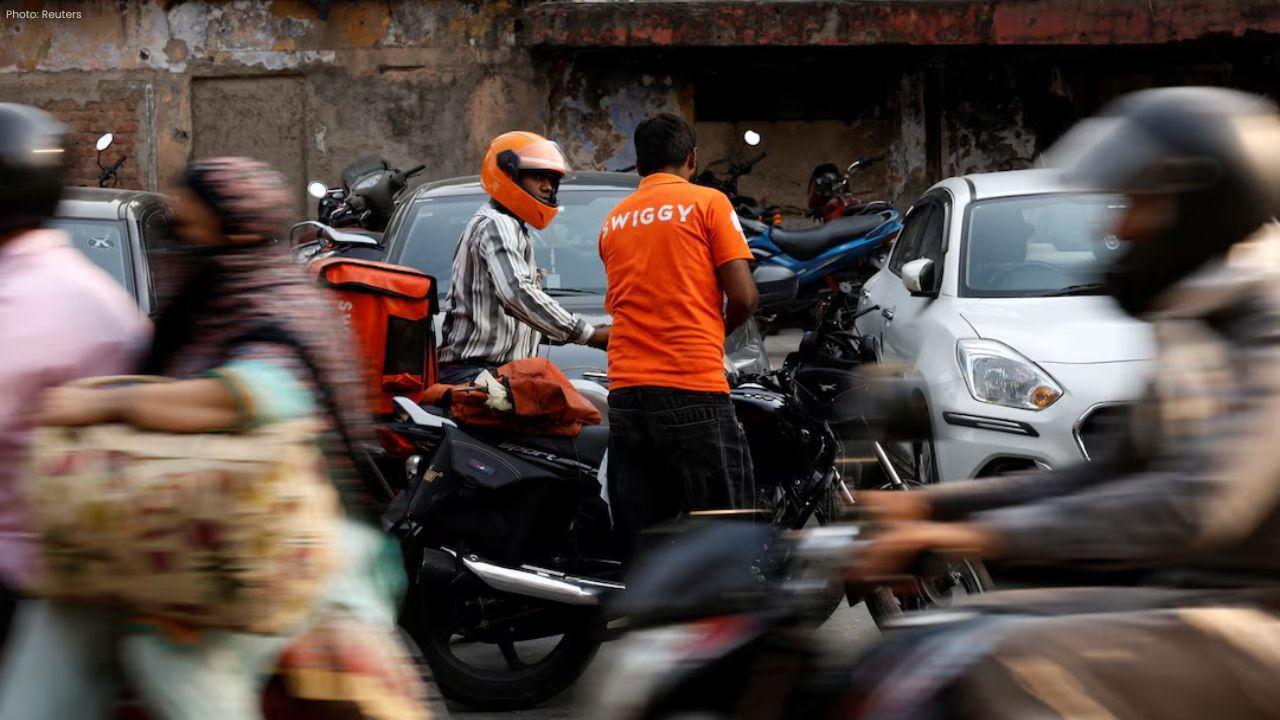You have not yet added any article to your bookmarks!

Join 10k+ people to get notified about new posts, news and tips.
Do not worry we don't spam!

Post by : Anis Farhan
The moment we wake up, our hands instinctively reach for our phones. A quick glance at notifications becomes a fifteen-minute scroll. Instagram reels, TikTok trends, and viral posts consume our attention before breakfast. It feels harmless — even entertaining — yet millions across the globe admit they can’t stop.
Social media addiction isn’t just about spending too much time online; it’s about how these platforms shape our psychology. They are engineered to keep us hooked, manipulating our attention and emotions. Over time, what begins as casual scrolling turns into a behavioral pattern that affects mood, productivity, and even self-worth.
At its core, social media addiction stems from how our brain’s reward system works. Every like, comment, or new follower releases dopamine — the “feel-good” chemical associated with pleasure and motivation. This creates a reward loop: the more engagement we receive, the more we crave it.
Social media platforms are designed to exploit this loop. Infinite scrolling, autoplay videos, and unpredictable notifications mimic the mechanics of slot machines. The brain loves unpredictability — that tiny chance of receiving something rewarding (like a new like or message) makes us check our phones repeatedly.
Psychologists call this “variable reward scheduling,” a concept borrowed from behavioral experiments. It’s the same psychological trick casinos use — only this time, it’s in your pocket.
Humans are social beings; we crave acceptance, recognition, and belonging. Social media amplifies this instinct by turning social validation into measurable numbers — likes, shares, comments, and followers.
When a post performs well, it boosts our self-esteem. When it doesn’t, it can lead to self-doubt and comparison. The constant evaluation of our worth through digital metrics conditions the mind to seek validation externally. This is why many users check their posts obsessively after uploading — it’s not just curiosity; it’s emotional dependence.
Over time, this cycle erodes intrinsic confidence. Instead of valuing genuine experiences, people start curating their lives for approval, feeding an endless loop of performance and comparison.
Social media algorithms are not neutral; they are designed to maximize engagement. They analyze your behavior — what you like, pause on, or scroll past — and feed you more of the same. This creates a personalized echo chamber, reinforcing specific emotions and keeping you online longer.
If you pause on travel videos, you’ll see more wanderlust content. If you engage with drama or outrage, your feed will serve more of it. The result? Emotional manipulation disguised as entertainment.
These algorithms prey on human curiosity and vulnerability. They know when you’re most likely to open the app, when you’re bored, and even when you’re feeling lonely. Every notification is crafted to interrupt your focus, drawing you back into the cycle.
One of the most harmful aspects of social media addiction is constant comparison. Platforms showcase the highlights of others’ lives — success, beauty, vacations — creating unrealistic standards.
People rarely post their failures or insecurities. Yet, when we see others’ achievements, our brain interprets it as reality. This fuels feelings of inadequacy, envy, and even depression.
The term “compare and despair” perfectly captures this phenomenon. Studies show that the more time people spend on social platforms, the higher their chances of experiencing low self-esteem and body image dissatisfaction. The constant exposure to idealized images distorts perception, making ordinary life seem dull in comparison.
Another psychological driver behind social media addiction is FOMO — the Fear of Missing Out. The endless stream of updates, trends, and events triggers anxiety about being left behind.
People fear disconnecting, worrying they’ll miss important news or social interactions. This fear pushes users to check apps compulsively, even during work, meals, or social gatherings. Ironically, the more time spent online to feel “connected,” the more disconnected people often feel in real life.
Social media gives the impression of constant connection, but the relationships it fosters can be superficial. Clicking a like button or leaving a comment is not the same as real communication.
In-person conversations build empathy, trust, and emotional understanding — things that emojis and reactions cannot replace. Overreliance on digital interaction often leads to emotional isolation, even when surrounded by online “friends.”
This illusion of connection can worsen loneliness. People become more comfortable engaging through screens than face-to-face, creating a paradox — millions connected online, yet feeling lonelier than ever.
The psychological consequences of excessive social media use are increasingly evident. Studies have linked prolonged screen time with anxiety, depression, and sleep disturbances. The constant exposure to curated perfection leads to emotional exhaustion.
The endless scroll also contributes to attention fatigue. Our brains are not wired for rapid information shifts. Over time, concentration weakens, and activities like reading or focused work become harder.
Moreover, the emotional rollercoaster of online interactions — from excitement to disappointment — can destabilize mood patterns. Many users report feeling drained after browsing social platforms, even if they began their session seeking relaxation.
Young users are particularly vulnerable. Teenagers and young adults are in formative stages of identity development. When self-worth becomes tied to digital validation, it can distort self-image and create lifelong insecurities.
Excessive use among teens has been linked to rising cases of social anxiety, cyberbullying, and poor sleep quality. Notifications become interruptions during study or rest, reducing focus and academic performance.
In extreme cases, social media dependency can mimic symptoms of addiction: cravings, withdrawal, mood swings, and loss of control. It becomes not just a habit — but a compulsion.
Awareness is the first step toward recovery. Understanding the mechanics of addiction helps reclaim control. Here are effective strategies to break the digital dependency cycle:
Set Time Limits: Use built-in phone tools to monitor and restrict social media usage.
Disable Non-Essential Notifications: Reduce distractions and regain focus.
Create Tech-Free Zones: Avoid using phones during meals, family time, or before sleep.
Replace the Habit: Engage in offline activities like reading, exercising, or journaling.
Be Intentional: Ask yourself why you’re opening an app before you do — awareness changes behavior.
Practicing these habits doesn’t mean quitting social media entirely. It means using it consciously, not compulsively.
Social media can still be beneficial when used wisely. It can educate, inspire, and connect communities. The key lies in balance — consuming content that adds value instead of draining energy.
Follow creators who uplift, educate, or encourage critical thinking. Avoid negative, polarizing, or toxic pages that trigger comparison or anxiety. Curate your feed consciously — it’s your digital diet, and what you consume shapes your mental health.
Setting boundaries also means reclaiming real-world experiences. Spend time in nature, meet friends offline, and rediscover hobbies. The brain needs real interaction to stay emotionally healthy.
The first step toward solving any problem is acknowledging it. Social media addiction isn’t a personal failure — it’s a psychological response to a system built to manipulate attention. Awareness helps users shift from passive scrolling to active choice.
When people realize that algorithms are designed to exploit their psychology, they regain power. By setting intentional boundaries and prioritizing well-being, it’s possible to enjoy the benefits of digital platforms without being consumed by them.
As technology continues to evolve, social media will become even more immersive, blending with virtual reality and AI-generated experiences. The future will demand stronger awareness and self-regulation.
Digital well-being must become a global conversation — integrated into education, workplaces, and parenting. Just as society once learned to manage television or gaming habits, the next step is developing a healthy digital culture where technology serves humanity, not the other way around.
Ultimately, balance is the antidote to addiction. By understanding the psychology behind social media, users can transform it from a controlling force into a conscious tool — one that connects, inspires, and informs without overwhelming.
This article is intended for informational and educational purposes only. It does not replace professional psychological or medical advice. Individuals experiencing symptoms of anxiety, addiction, or emotional distress are encouraged to seek help from licensed mental health professionals.










Alyssa Healy Announces Retirement, To Play Final Matches Against India
Alyssa Healy to retire after India series, ending a 15-year career with 3,563 ODI runs, 275 dismissa

Malaysia to Take Legal Action Against X Over AI Chatbot Grok Safety
Malaysia’s regulator warns X over AI chatbot Grok, citing user safety risks from sexualized image cr

Rashami Desai Opens Up About 8-Year Battle With Depression
TV actress Rashami Desai reveals how work helped her heal from an eight-year-long struggle with depr

Myanmar Polls Proceed as Junta Chief Min Aung Hlaing Looms Large
Though not on the ballot, junta leader Min Aung Hlaing dominates Myanmar’s election amid civil war,

Greenland Annexation Bill Proposed to Strengthen US Arctic Control
A new US bill proposes Greenland's annexation and statehood to secure Arctic dominance and curb Chin

Canada’s PM Mark Carney Begins Key China Visit Amid Trade Tensions
Canada’s PM Mark Carney visits China to strengthen trade and security ties amid strained U.S. relati